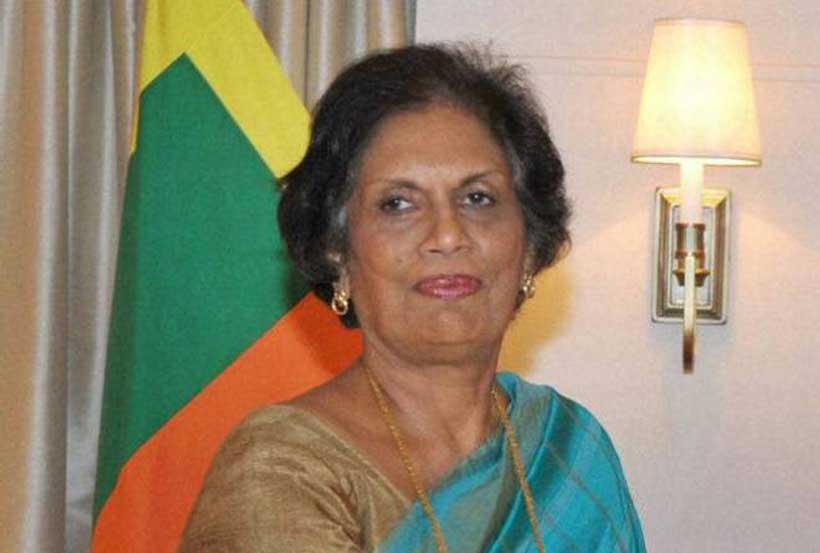
Ahead of a planned speaking engagement hosted by the London School of Economics (LSE) and featuring Sri Lanka’s former President Chandrika Bandaranaike Kumaratunga, LSE’s student Tamil society spoke with Tamil Guardian to express their disappointment over the event.
“The very name of the event is problematic,” a member of LSE’s Tamil society told the Tamil Guardian.
The event which is entitled “Ceylon to Sri Lanka: A journey in Nationhood” has been arranged to mark Sri Lanka’s 75 anniversary since independence. It has received backlash for Tamil students who maintain that the title in itself attempts to erase the identity of Eelam Tamils who have a separate claim to nationhood.
“It is an attempt to erase our identity,” the LSE student told our writers. They further asked;
“Why invite a known war criminal to lecture us on Sri Lanka’s development?”
“Will they ask about the massacres of Tamil civilians that she oversaw?”
Asked about their engagement with LSE’s South Asia centre, the LSE Tamil Society maintained that despite their outreach they have yet to receive a response explaining their decision to give the accused war criminal a platform.
During her administration from 1994 to 2005, Kumaratunga over a number of mass atrocities and torpedoed efforts at brokering a peace agreement. These massacres include the 1995 Navaly Church bombing, the 1995 Nagerkovil school massacre, the 1996 Kumarapuram massacre, the 1998 Thampalakamam massacre, and the 1999 Puthukkudiyituppu massacre. These massacres saw the indiscriminate killing of Tamil civilians and the use of cluster bombs on churches.
“Despite decades passing, she has not been held to account for her crimes” the LSE student told our writers.
“The LSE South Asian Centre is deeply ignorant. We won’t take this lightly” they warned.
Whilst expressing their hopes that the talk does not go forwards, the Tamil society representative also emphasised the need for LSE to communicate with them and provide an alternative to the Colombo narrative.
Speaking with the LSE Tamil Society's founding member and alumni, he explained that Tamil students at the university have long objected to the oppressive rule of the Sri Lankan government and noted that Kumaratunga speaking at the university went against the values of the LSE Student Union as a whole.
In 2014, the LSE Student Union passed a motion calling for sanctions against Sri Lanka and for prosecutions to take place, recognising that the ongoing crisis on the island constitutes genocide.
Read more here: LSE Student Union calls for prosecutions and sanctions against Sri Lanka
In a joint statement with other Tamil student organisations, they called on the LSE to provide a platform to the leader of the Tamil National People’s Front (TNPF), Gajendrakumar Ponnambalam, to speak about the island’s economic crisis and its issues with federalism.
